I still vividly remember the first time a man called me "baby." In a Starbucks in Toronto, I ordered my coffee as I had a million times before. When I finished my order, the mid-20s male barista said in a soft, condescending tone, "Is there any more I can do for you, baby?"
For such a small interaction, it took me a long time to sort out my feelings. Wasn't this was what I had wanted? As a trans woman, this was a victory. I had been successfully "read" as a woman in a social interaction for the first time. Yet I could feel the condescension buried within the word "baby." That as a woman, I was like a child needing help to figure out what I wanted. For the first time in my life, just by nature of my identity, I felt belittled in a simple, everyday conversation.
Since transitioning from male to female, I've started to notice numerous differences in my interactions with men. More often, when trying to jump into a group conversation, I get spoken over. I have to be more aggressive with interjecting, often finding myself leaving conversations hoarse because I have to literally speak louder just to have my opinions heard. Even when my opinion is heard, I receive less acknowledgment that my idea was a good one than when I was seen and read as a boy.
This difference between how men and women are treated in conversations is well documented. Several studies have shown that women are seen to be more talkative than men in conversation, even when they contribute much less overall throughout the entire interaction.
It's no shock that men treat women with less respect than they do other men. It was something I was fully aware of well before I transitioned.
A few days before taking my first estrogen pill, I sat on my porch crying to my best friend. I was upset because despite my lifelong feeling of wanting to be female, I didn't feel I had the right to call myself a "woman." I hadn't experienced everyday, overt sexism. I hadn't felt the fear of walking along at night or being unwantedly hit on by a drunk man in a bar.
Women have so many struggles to deal with on an everyday basis, and who was I -- a white, middle-class college student who had experienced male privilege all her life -- to claim womanhood? By doing so, I felt I diminished what it meant to be a woman. Could I ever truly be a woman if I don't know what is was like to experience the subtle (and less then subtle) sexism woman face every day?
My best friend sat and listened through all my sobs. Then she looked me in the eye and told me one simple truth.
"You are a woman."
And she told me she was sorry. Sorry because she knew I was going to experience all those things. By being who I was, I would be seen as less-than and would be treated differently by men. It comes with the territory.
Not that every conversation with men brings with it all this baggage. In fact, since starting to transition, I have never felt happier then when I am seen and read as a woman in social interactions. Having men (and women) see and interact with me as a girl was the entire point of coming out as a trans woman. Knowing that my childhood dream of being able to go out into the world as a woman has now become a normal, everyday reality can still bring me to tears.
Yet it frustrates and angers me to feel the stark contrast in respect I receive now versus when I was perceived as a guy. Even without ever being directly told, both men and women are taught that women's thoughts, contributions, and opinions are worth less than men's. To someone who has experienced both sides of the coin, it's not just an abstract concept. It's an almost palpable difference that I notice daily.
My ideas are no less (or more) valuable just because they now come from someone with boobs. Yet this seems to have been subconsciously decided as true by many of the men I talk to, including many who I knew before transitioning.
After my friend told me she was sorry, she told me one more thing: Womanhood isn't defined by men or how men treat you. While women's history is a story of attempting to break the oppression caused by a patriarchal society, men are not the arbiters of who gets to be a woman or not. Womanhood comes from within, from who you are inherently.
As my best friend illustrated, I was always a woman. Transitioning, at least for me, was only about showing the rest of the world (and myself) what had always existed inside of me regardless. It allowed the world to see what I already knew, and it made me more comfortable being who I am.
People have treated me as someone who is less-than both because of my womanhood and my trans-ness. Yet that neither proves my womanhood nor defines it. Only I define who I am. I just let everyone else know and let them decide what to do with it.
Having gone "through the looking glass," I look back at my conversation with my friend. Now that I experience what she has dealt with since she was born, I feel a sense of solidarity with her that I never could have felt beforehand. In light of movements like the Women's March, it's now more crucial then ever that we stand together as women, cis or otherwise, to show that we define what being a woman is -- no one else.
JESSIE EARL is a video editor for The Advocate. Follow her on Twitter @lostrekkie.

































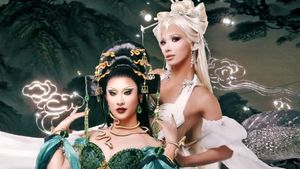
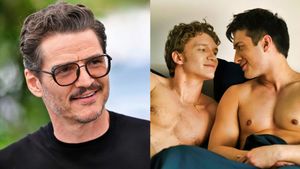







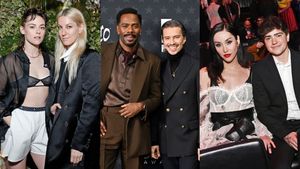

















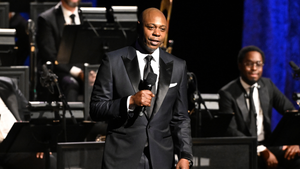

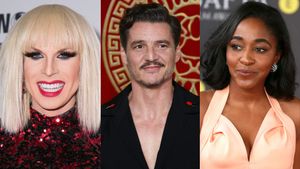

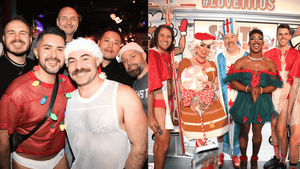

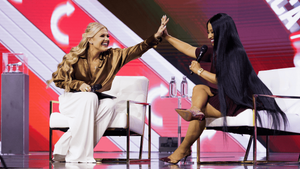
Charlie Kirk DID say stoning gay people was the 'perfect law' — and these other heinous quotes